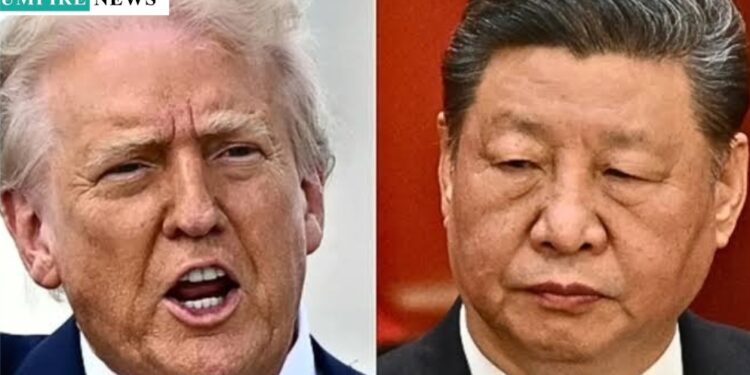Beijing has officially rolled out new retaliatory tariffs on American goods, imposing an eye-watering 84% duty on
imports from the United States. This bold move comes on the heels of President Donald Trump’s announcement the
previous day, which revealed a plan to raise tariffs on Chinese goods to 125%.
Chinese officials have vehemently rejected Washington’s approach, accusing the U.S. of using blackmail tactics in its
bid to maintain global economic dominance. The Chinese Ministry of Commerce has vowed to resist U.S. pressure,
stating that it will continue to protect its economic interests amid the growing tensions.
You may also like: Trade Tensions Escalate: China Slaps Tariffs on Canada
China is also actively seeking alternative alliances as part of its strategy to counterbalance the impact of the tariffs.
On Tuesday, Chinese Commerce Minister Wang Wentao engaged in a crucial phone call with EU Trade Commissioner
Maroš Šefčovič to discuss expanding economic ties between China and the European Union. In the conversation,
Wang criticized U.S. tariff policies, calling them detrimental to global trade and urging the EU to support a multilateral rules-based system.
The EU, for its part, has maintained close economic relations with China. In 2024, China was the third-largest export
destination for the EU and its leading source of imports, despite a significant trade deficit, which last year stood at
approximately 300 billion euros ($329 billion). As part of their ongoing efforts, both sides have agreed to initiate talks aimed at improving market access and fostering a better business environment.
While the EU and China continue to strengthen their ties, Beijing has chosen not to respond to the latest tariff
increases announced by Washington, signaling a pause in its direct retaliation. In the meantime, certain countries
have had their tariffs temporarily suspended, providing some relief to specific trade sectors.

































